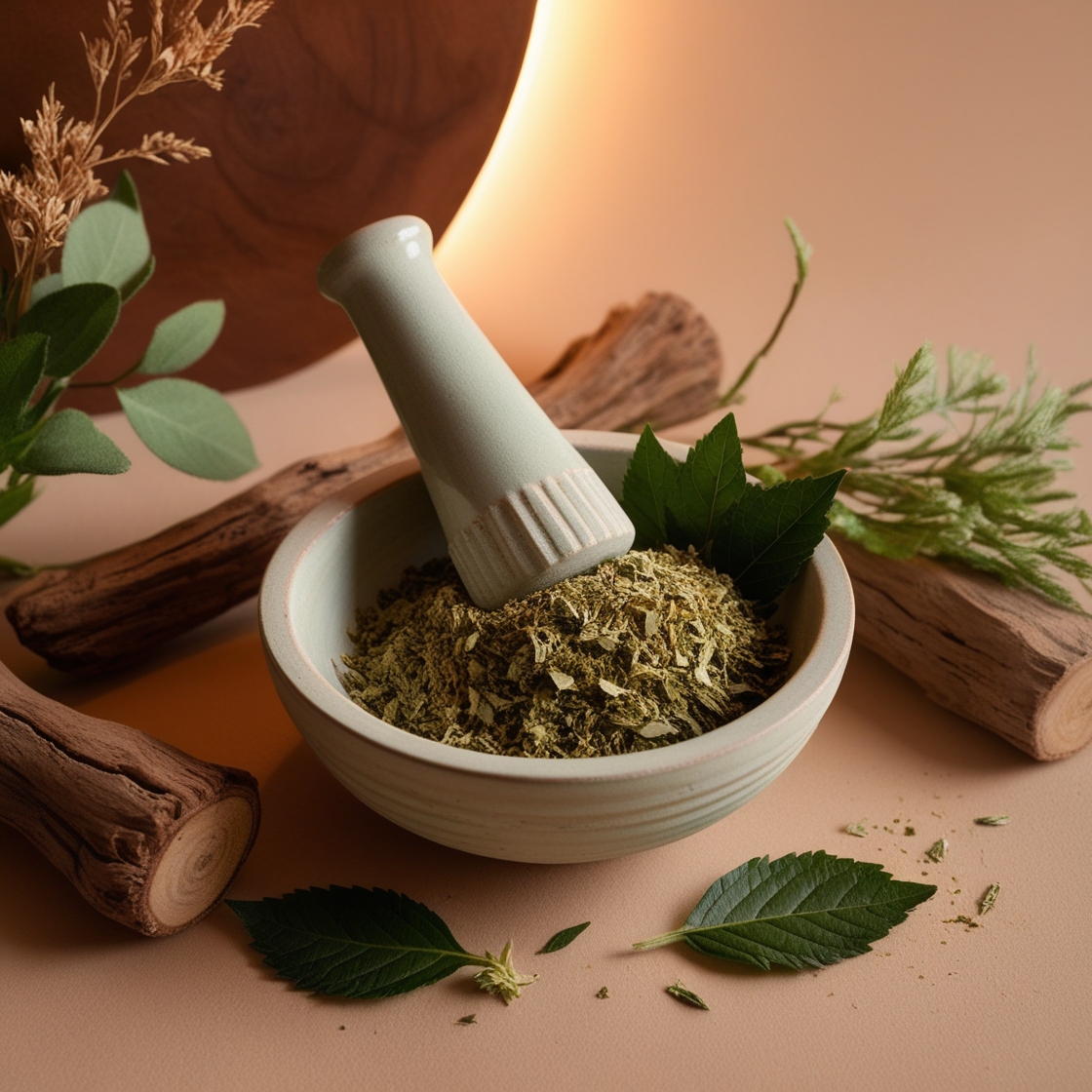In today’s world of modern medicine, people are increasingly looking for natural and time-tested alternatives to improve their health. One such option that has gained popularity is ceñillin, a plant known for its extensive medicinal properties. This herb, often used in traditional remedies, has stood the test of time and is becoming a staple in natural healing practices.
What is Ceñillin?
Ceñillin, often referred to as “the forgotten herb,” is a medicinal plant found primarily in Latin American regions. Known for its dense, green foliage and aromatic properties, ceñillin has been used for centuries to treat various ailments ranging from digestive issues to respiratory conditions. Despite its long history, ceñillin is only recently being rediscovered as more people turn towards herbal medicine for holistic healing.
The leaves of the ceñillin plant are typically dried and used to prepare herbal teas, tinctures, or poultices, offering a wide range of health benefits. The plant contains essential oils, antioxidants, and anti-inflammatory compounds that make it a powerful tool in promoting well-being.
Historical Use of Ceñillin in Traditional Medicine
Throughout history, ceñillin has played an integral role in the health and wellness practices of indigenous cultures. Healers in rural communities have long used this plant to relieve pain, treat infections, and improve overall vitality. Often seen as a “panacea” for various conditions, ceñillin’s traditional uses include reducing fever, calming nerves, and aiding digestion.
Interestingly, ancient herbalists believed that ceñillin could also restore energy and balance the body’s natural systems. This made it a highly valued plant not just for treating diseases but also for maintaining long-term health and vitality.
Health Benefits of Ceñillin
One of the main reasons for ceñillin’s resurgence in popularity is its numerous health benefits. From boosting the immune system to promoting digestive health, the herb has much to offer.
Rich in Antioxidants
Ceñillin is packed with antioxidants, which help to neutralize free radicals in the body. Free radicals are unstable molecules that can damage cells, leading to chronic conditions such as heart disease, cancer, and aging. By consuming ceñillin, either through teas or supplements, you can help protect your body from oxidative stress and promote longevity.
Anti-inflammatory Properties
Chronic inflammation is at the root of many diseases, including arthritis, cardiovascular disease, and even depression. Ceñillin contains compounds that exhibit strong anti-inflammatory effects, making it an excellent remedy for managing inflammation naturally. By incorporating ceñillin into your daily routine, you may experience reduced joint pain, improved heart health, and better mental clarity.
Improving Digestive Health
For centuries, ceñillin has been used as a natural remedy for digestive issues. It is known to ease symptoms such as indigestion, bloating, and constipation. The plant’s soothing properties help calm the gastrointestinal tract, making it easier for the body to process and absorb nutrients. Ceñillin tea, for example, is a common remedy for stomach discomfort and can be an excellent addition to your diet for improved digestion.
Boosts Respiratory Function
Ceñillin has long been used to treat respiratory ailments such as colds, asthma, and bronchitis. The herb helps open airways, reduce mucus buildup, and alleviate coughs, making it an effective natural solution for respiratory health. Whether used as a steam inhalation or a soothing tea, ceñillin can support the respiratory system and offer relief from congestion and irritation.
How to Use Ceñillin in Your Daily Routine
Incorporating ceñillin into your daily life can be simple and rewarding. There are several ways to enjoy the benefits of this herb, from drinking ceñillin tea to using it in topical applications.
Ceñillin Tea Recipe
One of the most common ways to consume ceñillin is in the form of a herbal tea. The process is simple:
- Ingredients:
- 1 tablespoon of dried ceñillin leaves
- 2 cups of water
- Honey or lemon to taste (optional)
Instructions:
- Bring water to a boil in a pot.
- Add the dried ceñillin leaves and let them steep for 10–15 minutes.
- Strain the tea into a cup and add honey or lemon if desired.
Drinking this tea regularly can help boost your immune system, improve digestion, and soothe your respiratory system.
Topical Applications
In addition to drinking ceñillin tea, the plant can also be used topically. Creating a poultice or infused oil with ceñillin leaves can help treat skin conditions such as rashes, burns, and insect bites. The plant’s anti-inflammatory and antimicrobial properties make it effective in soothing irritated skin and promoting faster healing.
Are There Any Side Effects of Ceñillin?
While ceñillin is generally considered safe, it’s always important to approach herbal remedies with caution. Some individuals may experience allergic reactions or gastrointestinal upset when consuming the herb, especially in large quantities. It is recommended to start with small doses and consult with a healthcare professional if you have any pre-existing health conditions or concerns.
Pregnant and breastfeeding women should also be cautious when using ceñillin, as there is limited research on its safety in these populations. Like any herb, it’s essential to use ceñillin responsibly and pay attention to how your body reacts.
Ceñillin’s Role in Modern Herbal Medicine
In recent years, there has been a growing movement towards integrating traditional herbal practices into modern medicine. Ceñillin is a prime example of how ancient wisdom is being validated by contemporary research. As studies continue to explore the benefits of this plant, more people are discovering the value of ceñillin in promoting health and wellness naturally.
Herbalists and naturopaths are increasingly recommending ceñillin to their clients for its wide range of applications. From immune support to pain relief, the herb is proving to be a versatile and effective remedy in today’s world of natural medicine.
Growing Ceñillin at Home
If you’re interested in harnessing the power of ceñillin yourself, you may consider growing the plant at home. Ceñillin is relatively easy to cultivate, even for beginner gardeners. The plant thrives in well-drained soil and requires moderate sunlight and water. Growing your own ceñillin ensures that you have a fresh and constant supply of this beneficial herb for teas, tinctures, and topical applications.
Once harvested, the leaves can be dried and stored for future use, making it a convenient addition to your home apothecary.
The Future of Ceñillin in Natural Health
As more research is conducted on the health benefits of ceñillin, it is likely that this plant will continue to rise in popularity. With its rich history and proven medicinal properties, ceñillin is a valuable addition to any natural health regimen.
While modern medicine continues to evolve, there is a growing appreciation for the healing power of nature. Ceñillin represents a bridge between ancient herbal wisdom and contemporary science, offering a natural, holistic approach to well-being. Whether you’re seeking relief from common ailments or simply want to support your overall health, ceñillin is an herb worth exploring.
Conclusion
Ceñillin is more than just a plant; it’s a powerful natural remedy with a rich history in traditional medicine. Whether you’re sipping on ceñillin tea to calm your stomach or using it to soothe irritated skin, this versatile herb offers numerous health benefits. By incorporating ceñillin into your wellness routine, you can tap into its healing properties and support your overall well-being.
FAQs
Is ceñillin safe to consume daily?
Yes, ceñillin is generally safe for daily use, especially in tea form. However, it is always advisable to start with small amounts and consult a healthcare professional if you have any concerns.
Can ceñillin help with respiratory issues?
Absolutely. Ceñillin has been traditionally used to treat respiratory conditions such as asthma, colds, and bronchitis. Its anti-inflammatory and expectorant properties help open the airways and reduce mucus buildup.
How do I prepare ceñillin tea?
To prepare ceñillin tea, simply steep 1 tablespoon of dried leaves in 2 cups of boiling water for about 10–15 minutes. You can add honey or lemon to enhance the flavor.
Are there any known side effects of ceñillin?
While ceñillin is generally safe, some people may experience mild digestive discomfort or allergic reactions. It’s important to use the herb in moderation and consult a healthcare provider if needed.
Can I grow ceñillin at home?
Yes, ceñillin is relatively easy to grow at home. It requires well-drained soil and moderate sunlight. Growing your own ceñillin ensures a fresh supply for your health needs.
What are the main health benefits of ceñillin?
Ceñillin is known for its antioxidant, anti-inflammatory, and digestive benefits. It helps protect against chronic disease, improves digestion, and supports respiratory health.

 Marketing6 months ago
Marketing6 months ago
 News6 months ago
News6 months ago
 News6 months ago
News6 months ago
 News2 months ago
News2 months ago
 THC6 months ago
THC6 months ago
 Marketing6 months ago
Marketing6 months ago
 News2 months ago
News2 months ago
 Health6 months ago
Health6 months ago



